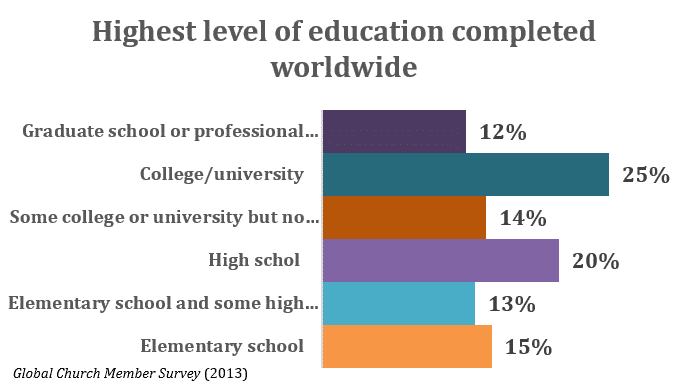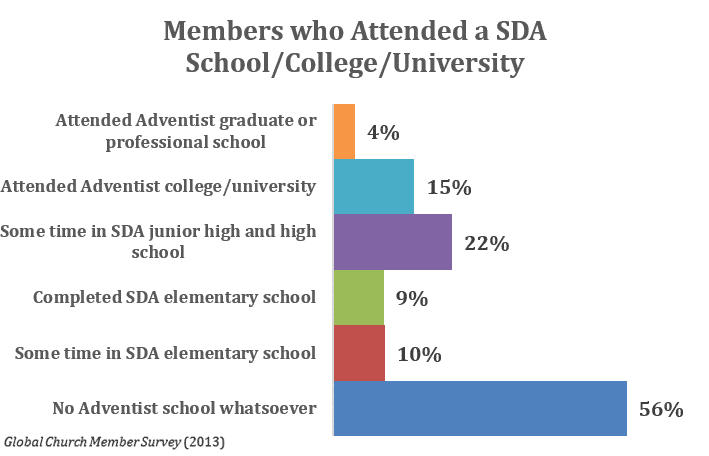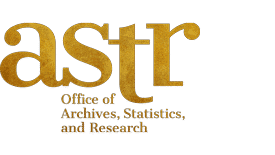There’s no doubt about it: education is often an indicator of the trajectory one’s life will take. As Reggie McNeal writes in his book Kingdom Come: “…No other endeavor covers as much of the human landscape as education. Every life and health indicator is tied to education: jobs, wellbeing, family, even church attendance. When we work to improve education, we touch a lot of other real estate in terms of bettering people’s lives” (p. 127).
The Seventh-day Adventist Church and its members feel strongly about educating our children; Adventist schools focus not only on teaching skills needed in this world, but also teach students to keep their eyes ever-fixed on the Kingdom to come. And, while some might say that Adventist education is dying, research actually shows the opposite! According to the 2016 Education Report prepared by the General Conference Office of Archives, Statistics, and Research (ASTR):
- In 2015, there were 8,208 Adventist educational institutions (including primary schools) worldwide; however in 2016, the number jumped up to 8,515.
- In 2015, enrollment in Adventist schools worldwide was recorded at 1,922,982 and there were 84,869 graduates of Adventist educational institutions; in 2016, enrollment was recorded at 1,954,872 and produced 93,261 graduates.
- In 2015, Adventist schools and institutions employed 102,778 teachers, while in 2016 that number grew up to 108,639.
As part of a 2013 study conducted by ASTR, members around the world were asked about their experiences within the Adventist Church, their outlook on different aspects of their spiritual lives, and their participation in their local Adventist Church. In addition, members were also asked about their involvement in Adventist education.
Church members globally were asked if they have been Seventh-day Adventists since birth. Interestingly, approximately half (52%) of members were born into the Church, while the other half (48%) were not. This study showed that the highest percentage of members reporting being born into the church was in the Trans European Division (TED), where 68.6% of respondents reported being Adventist from birth. The South American Division (SAD) was the division reporting the highest number of those who were not Adventist from birth (64.18%).
Members were asked about the highest level of education they have completed – regardless of where the education was attained. Worldwide results show that:
- 14.62% of respondents only completed elementary school.
- 13.21% completed elementary school and some high school.
- 20.42% are high school graduates.
- 14.15% completed some college or university but did not earn a degree.
- 24.75% are graduates of a college or university.
- 12.42% are graduate school or professional school graduates

When we look at each division individually, we see that respondents in the TED report the largest number of graduate/professional school graduates (20.4%), while the East-Central African Division (ECD) reports the largest number of elementary school only respondents (27.2%).
Members were then asked if they had ever attended a Seventh-day Adventist school, college, or university. Over half (56.37%) of survey respondents indicated that they have no Adventist schooling whatsoever. About one in ten (9.64%) shared that they had spent some time in an SDA elementary school, while a similar number (9.43%) completed SDA elementary. A small number (7.32%) reported attending some SDA junior high school, and over one in ten (14.83%) attended some SDA high school.

When it comes to institutions of higher learning, 15.16% of survey respondents attended an Adventist college or university, while only a small number (4.16%) attended a SDA graduate school or professional school.
Many students are preparing to enter a new school year within the coming weeks – be it in Adventist schools and institutions, public schools, homeschools, etc. Let us keep these students in prayer, so that no matter where they go, they will seek Jesus first, and continue preparing their hearts for a future spent in His kingdom.
“True education means more than the pursual of a certain course of study. It means more than a preparation for the life that now is. It has to do with the whole being, and with the whole period of existence possible to man. It is the harmonious development of the physical, the mental, and the spiritual powers. It prepares the student for the joy of service in this world and for the higher joy of wider service in the world to come” (Ellen White, Education, 13).
Data on education from the 2013 Global Church Member Survey can be found in division reports.
Created in collaboration with the Institute of Church Ministry.

